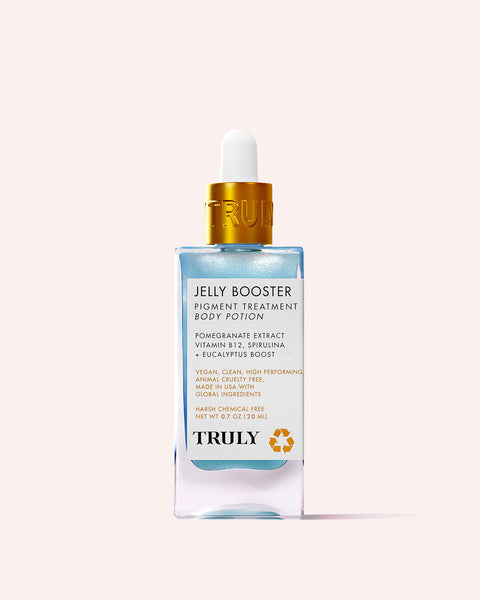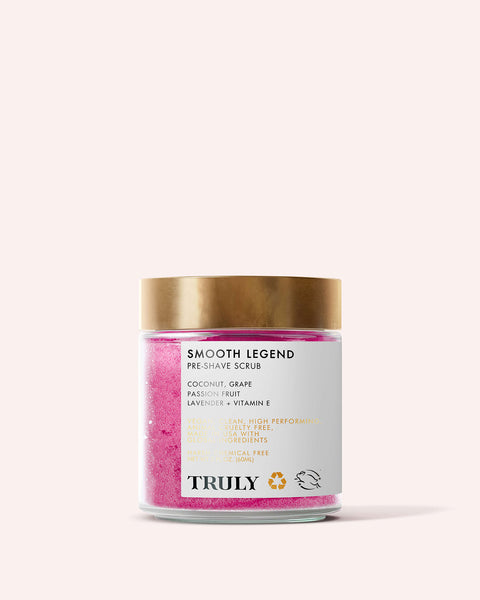Dark Spots on Black Skin: Your Guide

People with dark skin are more prone to dark spots. These spots can appear on the face or other parts of the body like the chest and back. They’re also extremely common.
“Hyperpigmentation is one of the most common concerns in skin of color that we encounter in dermatology,” says Adeline Kikam, DO, founder of the popular Brownskin Derm Instagram account. She adds that the condition is a loose term used to describe darkening of the skin caused by overproduction of melanin.
Let’s take a closer look at what causes dark spots and how to treat them effectively. We’ll also look into methods of prevention.
WHAT CAUSES DARK SPOTS?
From sun exposure to hormonal fluctuations and even acne, a number of factors can trigger dark spots on the skin. Dark spots are generally the result of excess melanin production, but they can also be caused by trauma to the skin such as:
- Acne
- Cuts
- Burns
- Psoriasis
If, for example, you have dark spots from long-gone breakouts, it’s likely the result of damaged or inflamed melanin skin cells. Once the pigment leaves the damaged cells, it goes deeper into the skin, forming a pesky dark spot.
“People of color produce more pigment, which gives us our beautiful complexions,” says Corey L. Hartman, MD, a dermatologist at Skin Wellness Center in Alabama. “On the other hand, it makes us more prone to experiencing a stain after the rash or breakout.”
Fading Takes (a long) Time
Once you figure out what’s causing your dark patches, you can still expect to wait a while before they disappear completely. Not all hyperpigmentation works the same, which is why some are pretty easy to get rid of and others take a long time to fade. And by long, we’re talking months and years. Then there’s the case of possible scarring which can occur both on the face and other parts of the body, like the backs, arms, and chest.
If a spot is only a few shades darker than your skin, it should fade within 12 months. If, on the other hand, the color lies deeper in your skin, fading can take several years. It’s why so many people turn to store-bought and in-office treatments for faster results.
With the right skincare approach, you can speed things up a little.
Start with Sunscreen
Sunscreen is essential for all skin types, including those with dark spots. Worn daily, regardless of the weather, sunscreen can protect the skin and prevent further darkening.
In spite of its importance, research suggests that sunscreen use is especially low among black people.
To get the protection you need to lessen and prevent dark spots, use a sunscreen with SPF 30 or higher and zinc oxide. If you’re prone to oiliness, look for a non-comedogenic sunscreen – this means it won’t clog your pores, meaning it’ll prevent breakouts which could lead to dark spots.
UV rays are responsible for most dark skin spots, as they trigger excess melanin production which causes darkening in certain areas.
To keep your skin healthy and spot-free, wear sunscreen all-year-round.
TRY THESE DARK SPOT REMOVING INGREDIENTS
Here are some ingredients to look out for that’ll banish your dark spots and patches.
Vitamin C
According to research, this potent antioxidant can protect against sun damage, boost collagen levels, and reduce melanin production which can stop hyperpigmentation.
Enriched with vitamin C and plant-based collagen, Truly’s Vegan Collagen Serum promotes skin brightening, lightening, and resurfacing for a smooth and spot-free complexion.
Glycolic Acid
Glycolic acid offers powerful exfoliating abilities which remove the top layers of skin, promoting collagen growth. As a result, this chemical is effective for treating fine lines, acne, oiliness, and uneven texture. It can also effectively lighten dark spots.
Make Truly’s Mary Jane Serum your first choice for a daily dose of glycolic acid. Made with retinol, hemp, caffeine, and glycolic acid, it’s everything you need for an even skin tone without those pesky dark patches.
Pomegranate Extract
Packed with antioxidant, anti-inflammatory, and anti-microbial properties, pomegranate extract helps fade scars and discoloration. Pomegranates also protect the epidermis and boost skin cell regeneration, promoting healing and repairing of the skin.
Try Truly’s Pigment Treatment Body Potion. It’s an essential for anyone who’s spent far too much time in the sun or those genetically prone to discoloration. It’s formulated with pomegranate extract, spirulina, and vitamin B12.
Skin Lightening Treatments
If you’d prefer faster results, opt for an in-office medical treatment to tackle your dark spots. There are two worth considering if you’re serious about getting rid of your dark patches.
Chemical Peeling
Chemical peels exfoliate the skin but go much deeper than your typical face scrub. Dermatologists consider them to be an effective treatment for pigmentation. However, if you have sensitive skin you do need to be careful that this treatment isn’t too strong for your skin.
This treatment can be costly, and you may require several sessions to achieve visible results.
Laser
Laser therapy uses light to remove areas of hyperpigmentation on the skin. According to research, laser therapy works well and delivers long-lasting results. But much like the peeling, it is expensive and requires multiple sessions to see noticeable results. There’s also the risk that it may lighten the skin surrounding the dark spot or produce a lighter spot in place of the dark patch.
Speak to your dermatologist before going ahead with this treatment to see if it’s right for you.
DARK SPOT PREVENTION TIPS
To round things up, here are a few ways you can prevent dark spots on black skin.
- Wear sunscreen with an SPF of at least 30 every day
- Avoid direct sunlight between 10:00 a.m. and 4:00 p.m.
- Moisturize the skin daily using ingredients that specifically target hyperpigmentation
- Steer clear of harsh exfoliating products
- Treat acne and other skin conditions promptly
If you’ve tried everything and your dark spots are still bothering you, see a dermatologist. They might be able to determine the root cause of your dark spots and offer the best treatment for you.








